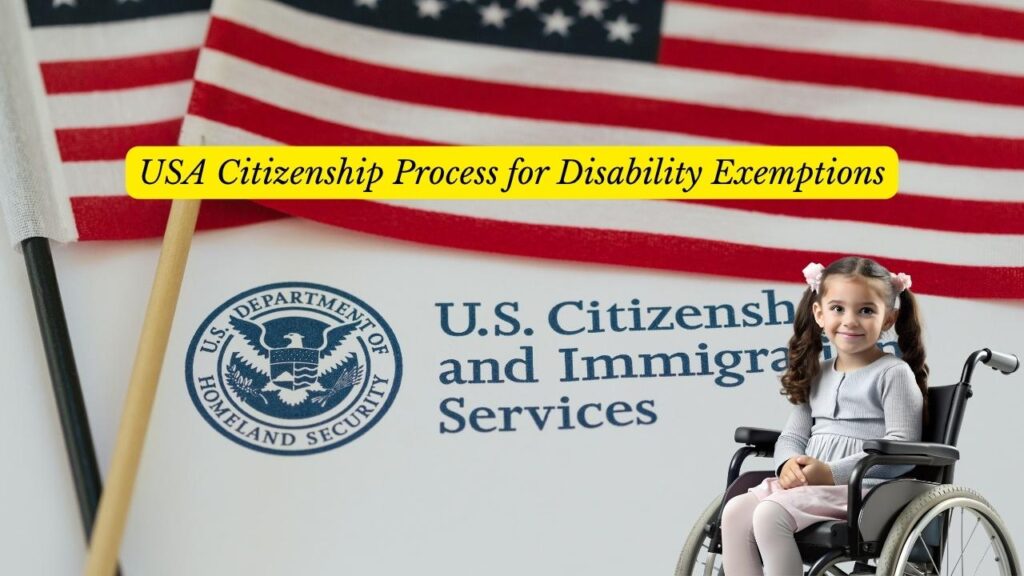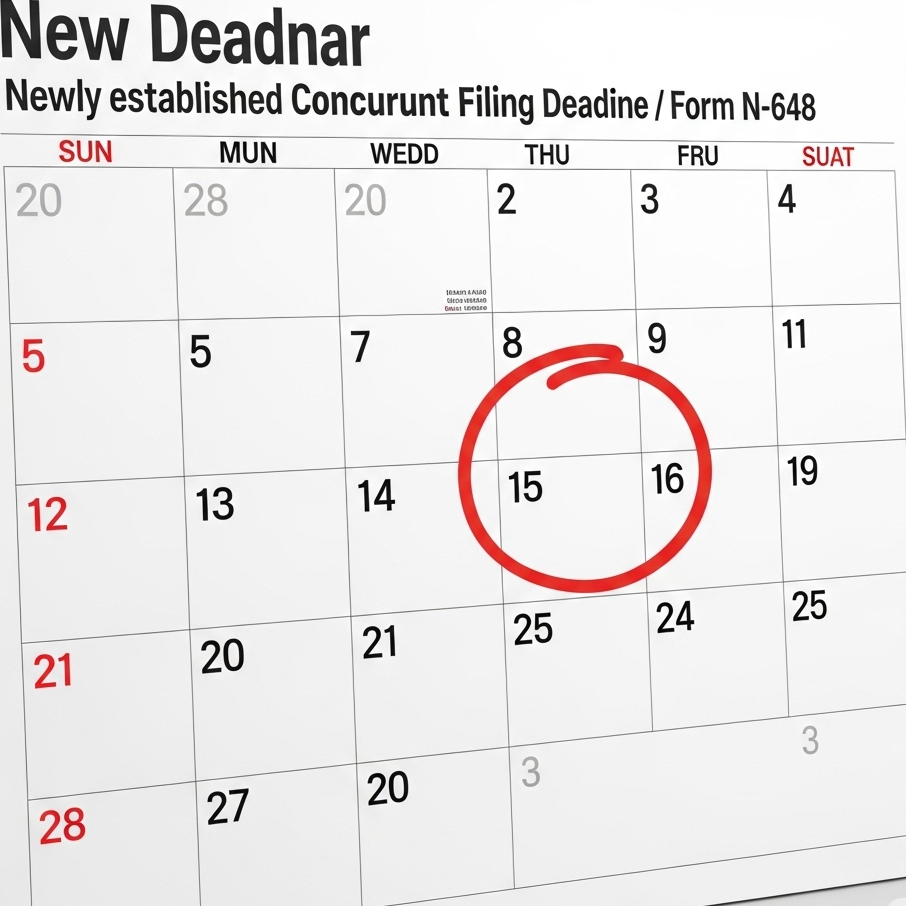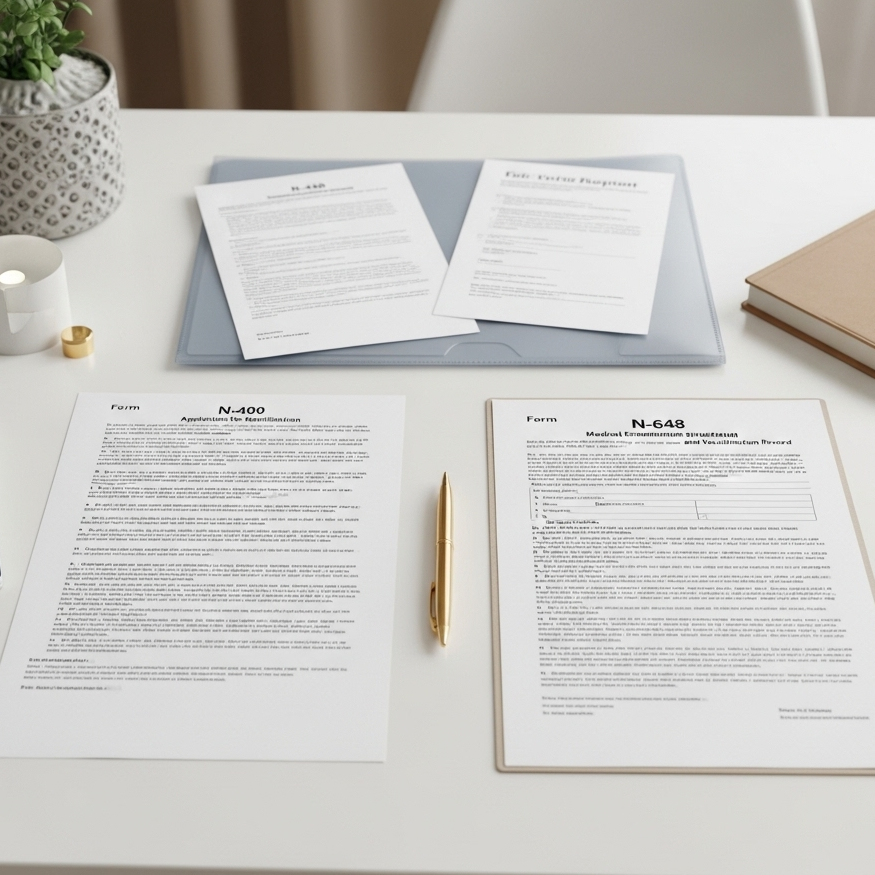On the path to U.S. citizenship, demonstrating knowledge of English and American civics is a significant milestone. For many, however, a physical, developmental, or mental disability can present a formidable barrier to meeting these requirements. Recognizing this, U.S. Citizenship and Immigration Services (USCIS) offers a crucial waiver known as the Medical Certification for Disability Exceptions, or Form N-648.1
Recently, the landscape for this waiver has shifted. As of mid-2025, USCIS has implemented significant updates to the process, aiming to enhance the integrity and security of the naturalization process. While change can feel daunting, this guide is designed to walk you through what’s new, what it means for you, and how to confidently navigate the updated requirements.

In my experience assisting individuals through the naturalization journey, the disability exemption process has always required careful attention to detail. These new changes double down on that need, making it more important than ever for applicants and their medical providers to present a clear, credible, and well-documented case. This article will break down the new policies, provide actionable steps, and offer the encouragement you need to move forward.
Key Changes to the Disability Exemption Process (Effective June 13, 2025)
| Key Change | What It Means for Applicants | Source |
| Concurrent Filing is Back | You must now submit Form N-648 at the same time as your Form N-400, Application for Naturalization. | USCIS Policy Alert |
| Stronger “Nexus” Required | The link between the disability and the inability to learn English/civics must be explicitly and thoroughly explained by the medical professional. | USCIS News Release |
| Increased Fraud Scrutiny | USCIS will apply greater focus on identifying fraudulent submissions, which could include reviewing multiple N-648s from the same doctor. | USCIS Policy Manual, Vol. 12 |
| Telehealth Still an Option | Medical examinations conducted via telehealth are still permissible where allowed by state law. | USCIS Form N-648 Page |
The journey to citizenship is a profound one, and navigating it with a disability adds another layer of challenge. These new regulations may seem strict, but they are ultimately about fairness and ensuring the system works as intended.
Do not be discouraged. By being proactive, preparing thoroughly, and working with a qualified medical professional, you can present a strong and credible application. This path requires patience and diligence, but the destination—becoming a U.S. citizen—is a remarkable achievement.
Understanding the “Why” Behind the Changes
To successfully navigate the new process, it helps to understand the motivation behind it. U.S. Citizenship and Immigration Services (USCIS) has stated that these updates are designed to “enhance the integrity of the review process” and “prevent fraud.”2 The agency has expressed concerns over instances where the medical certification process may have been exploited.3
By ensuring that only eligible applicants receive the waiver, USCIS aims to uphold the value and credibility of the naturalization process. For you, the applicant, this means the focus is on the quality and clarity of your application. Your goal is to provide an undeniable, truthful, and comprehensive picture of your situation.
The New N-648 Filing Rule: Timing is Everything
Perhaps the most significant operational change is the return to a former policy: Form N-648 must now be filed concurrently with your Form N-400, Application for Naturalization.
For years, applicants had more flexibility, often submitting the N-648 at the initial interview. That is no longer the case. Starting from June 13, 2025, your N-648 waiver request must be part of your initial naturalization application package.
What does this mean for you?
- Plan Ahead: You must schedule an appointment with your licensed medical professional well before you plan to submit your citizenship application.
- No Late Submissions (with few exceptions): USCIS will generally not accept an N-648 filed after the N-400. The only exceptions will be in “extenuating circumstances,” which are likely to be very narrowly defined. It is far safer to assume you have one shot to submit it correctly at the beginning.

The “Nexus”: Connecting Your Disability to the Learning Requirements
This is the heart of your N-648 application and where the new USCIS policy places its strongest emphasis. It is not enough for your doctor to simply state that you have a disability. They must now draw a clear and convincing line—a “nexus”—between the diagnosed condition and your inability to learn or demonstrate knowledge of English and/or U.S. civics.
What your medical professional must explain:
- The Specific Condition: A clear diagnosis of a medically determinable physical or developmental disability or mental impairment.
- The Origin and Duration: How the condition affects you and that it has lasted, or is expected to last, at least 12 months.
- The Causal Link: This is the critical part. The doctor needs to detail how the symptoms and limitations of your disability directly prevent you from learning, retaining, or recalling information.
For example, a generic statement like “The applicant has severe depression” is no longer sufficient. A stronger, more effective explanation would be: “Due to severe major depressive disorder, the applicant experiences significant deficits in concentration and memory recall, which directly impairs their ability to learn and retain new vocabulary and complex historical concepts required for the civics test.”
A Step-by-Step Guide to the New N-648 Process
Navigating this process can feel overwhelming, but breaking it down into manageable steps can help you stay on track.
Step 1: Determine Your Eligibility
First, confirm that your condition qualifies. The exemption is for individuals with a “medically determinable physical or developmental disability or mental impairment” that has lasted or is expected to last 12 months or more.The key is that this condition must prevent you from meeting the learning requirements.
Step 2: Choose the Right Medical Professional
Only a medical doctor (MD), doctor of osteopathy (DO), or clinical psychologist licensed to practice in the United States is authorized to certify Form N-648. Ensure your chosen professional understands the seriousness and detail required by the new USCIS guidelines.
Step 3: The Medical Examination
Your medical professional must conduct a thorough examination. This can be done in person or via a real-time telehealth appointment, as long as it’s permitted by the laws of your state. During the exam, be prepared to discuss how your condition impacts your daily life and your ability to learn.
Step 4: Completing the Form N-648
While your doctor fills out the medical portions, you are responsible for ensuring the entire form is accurate and complete.
- Review Every Section: Double-check that every question has been answered. Incomplete forms are a common reason for rejection.
- Clarity is Key: The language used should be plain and easily understood. Avoid overly technical medical jargon.
- The “Nexus” Explanation: This is the most scrutinized part. I’ve seen successful applicants work closely with their doctors to ensure this section is detailed, specific, and directly answers the “how” and “why.”
Step 5: File Concurrently with Form N-400
Package your completed and signed Form N-648 with your Form N-400 and all other required documentation. Mail it to the correct USCIS lockbox facility. Remember, they must be submitted together.

UK Needs You: Navigating Opportunities in Technology, Engineering, and Telecom
Navigating the New Form I-129: A Practical Guide for U.S. Employers and Nonimmigrant Workers
FAQ
Q1: When did these new rules for the disability exemption actually start?
The new policy guidance is effective immediately for all Form N-648 applications filed on or after June 13, 2025.7
Q2: What happens if I submitted my N-400 before June 13, 2025, but have my interview after?
The policy applies to applications filed on or after the effective date. If you filed before, you may still have the option to bring your N-648 to the interview, but it is always best to check with an immigration attorney for guidance specific to your case.
Q3: Can my family doctor fill out the Form N-648?
Yes, as long as they are a licensed medical doctor (MD), doctor of osteopathy (DO), or clinical psychologist in the U.S. It is beneficial if they have a history with you and understand your condition well.
Q4: What if USCIS doubts the validity of my N-648?
Under the new guidance, if an officer has “credible reason to doubt the validity” of the form, they may request additional evidence. This is why the initial submission’s thoroughness and clarity are so critical. In some cases, they might ask for a second opinion from a different medical professional.






